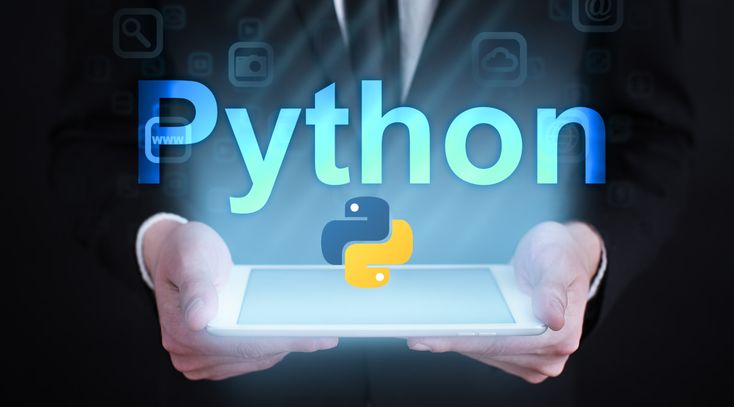The UK’s tech sector is dynamic and rapidly evolving, with Python consistently at its core. As we look towards 2025 and beyond, the future of Python certification in the UK will be shaped by several key trends, including the relentless rise of AI, the increasing demand for python certification uk specialized skills, and the evolving nature of learning and hiring.
Python’s Enduring Dominance
Python is not just a trend; it’s a fundamental pillar of modern technology. Its simplicity, readability, vast ecosystem of libraries, and versatility make it the go-to language for:
- Data Science & Machine Learning: Python is the undisputed king here, powering everything from basic data analysis to complex deep learning models.
- Web Development: Frameworks like Django and Flask remain popular for building robust web applications.
- Automation & DevOps: Python’s scripting capabilities are indispensable for streamlining processes and managing infrastructure.
- AI Engineering: As AI becomes more sophisticated, Python is the primary language for developing AI models and integrating them into various systems.
This enduring popularity means that Python skills will remain highly sought after in the UK job market for the foreseeable future, with average salaries for Python developers continuing to be attractive.
Key Trends Shaping Python Certification in the UK
1. Specialization Over Generalization
While foundational Python certifications (like PCEP and PCAP from the Python Institute) will remain valuable for beginners and career changers, the emphasis will increasingly shift towards specialized certifications.
- AI/ML Specializations: Given the massive investment in AI across UK industries, certifications focusing on Python for Machine Learning, Deep Learning, and AI Engineering will see a surge in demand. This includes credentials from platforms like DeepLearning.AI, Coursera (in partnership with universities or tech giants), and even vendor-specific AI/ML certifications that leverage Python.
- Cloud-Specific Python: As more businesses migrate to the cloud (AWS, Azure, GCP), certifications demonstrating Python proficiency for cloud automation, serverless functions, and cloud-native application development will become highly desirable.
- DevOps and Automation: Certifications that combine Python with tools and methodologies relevant to DevOps (e.g., Ansible, Docker, Kubernetes) will hold significant weight.
- Domain-Specific Python: Expect to see more certifications emerge for Python’s application in niche domains like FinTech, BioTech, or IoT, reflecting industry-specific needs in the UK.
2. The Influence of AI on Learning and Practice
AI, particularly Generative AI (GenAI), is already transforming how we learn and write code.
- AI-Augmented Learning: Certification courses will increasingly integrate AI tools (e.g., AI chatbots for personalized feedback, AI-powered coding assistants) to enhance the learning experience. This doesn’t diminish the need for human learning but rather makes it more efficient.
- Focus on Problem-Solving and AI Integration: Future certifications will likely place a greater emphasis on using Python to interact with AI models, interpret AI outputs, and build AI-powered solutions. The role of a “coder” may evolve into an “AI-augmented problem-solver.”
- Ethical AI in Python: As AI becomes more pervasive, understanding the ethical implications and biases in AI models developed with Python will become a crucial skill, potentially leading to specific modules or certifications.
3. Blended Learning and Practical Application
The UK learning landscape will continue its shift towards flexible, practical, and project-based learning.
- Continued Growth of Bootcamps: Coding bootcamps, which often heavily feature Python, will remain a popular route for rapid skill acquisition and career transitions, offering intensive, hands-on training and career support. Many also lead to their own certificates of completion.
- Emphasis on Portfolios: While certifications provide foundational validation, a strong GitHub portfolio with real-world Python projects will remain paramount. Certifications will increasingly serve as a credible foundation upon which a robust portfolio is built.
- Micro-credentials and Skill Stacking: Learners may opt for a series of smaller, specialized micro-credentials in Python rather than one large, all-encompassing certification, allowing for more tailored skill development.
4. The Evolving Role of Certifications in Hiring
In the UK, employers will continue to look for a blend of formal qualifications and practical experience.
- Entry-Level Differentiator: For junior roles, a recognized Python certification will continue to be a strong differentiator, especially for candidates without a traditional computer science degree. It signals commitment and foundational competence.
- Validation for Mid-Career Transitions: Professionals seeking to pivot into Python-centric roles will find certifications invaluable for validating their new skill sets to potential employers.
- Continuous Professional Development (CPD): For experienced professionals, certifications will increasingly serve as evidence of ongoing learning and adaptation to new technologies and industry trends.
- Supplement, Not Replacement: Certifications will augment, rather than replace, the need for hands-on experience, strong problem-solving abilities, and soft skills like communication and teamwork.
Conclusion
The future of Python certification in the UK is bright, mirroring the continued growth and evolution of Python itself. While core programming concepts remain essential, the trend is towards greater specialization, particularly in the rapidly expanding fields of AI, machine learning, and cloud computing. Certifications will continue to offer a structured learning path, validate skills, and provide a competitive edge in a demanding job market. For anyone looking to build or advance a tech career in the UK, strategic engagement with Python certification will remain a smart and rewarding investment.
